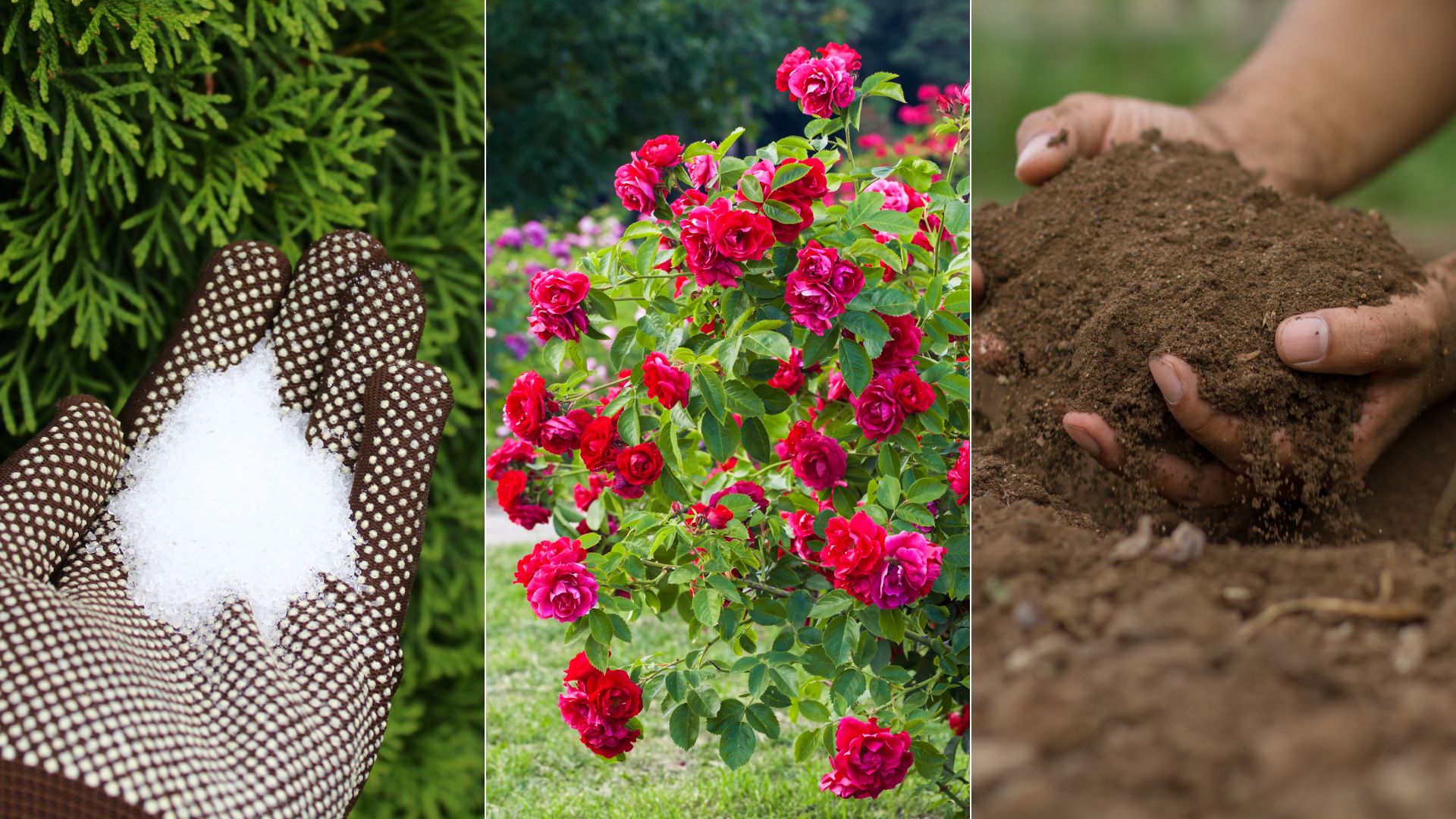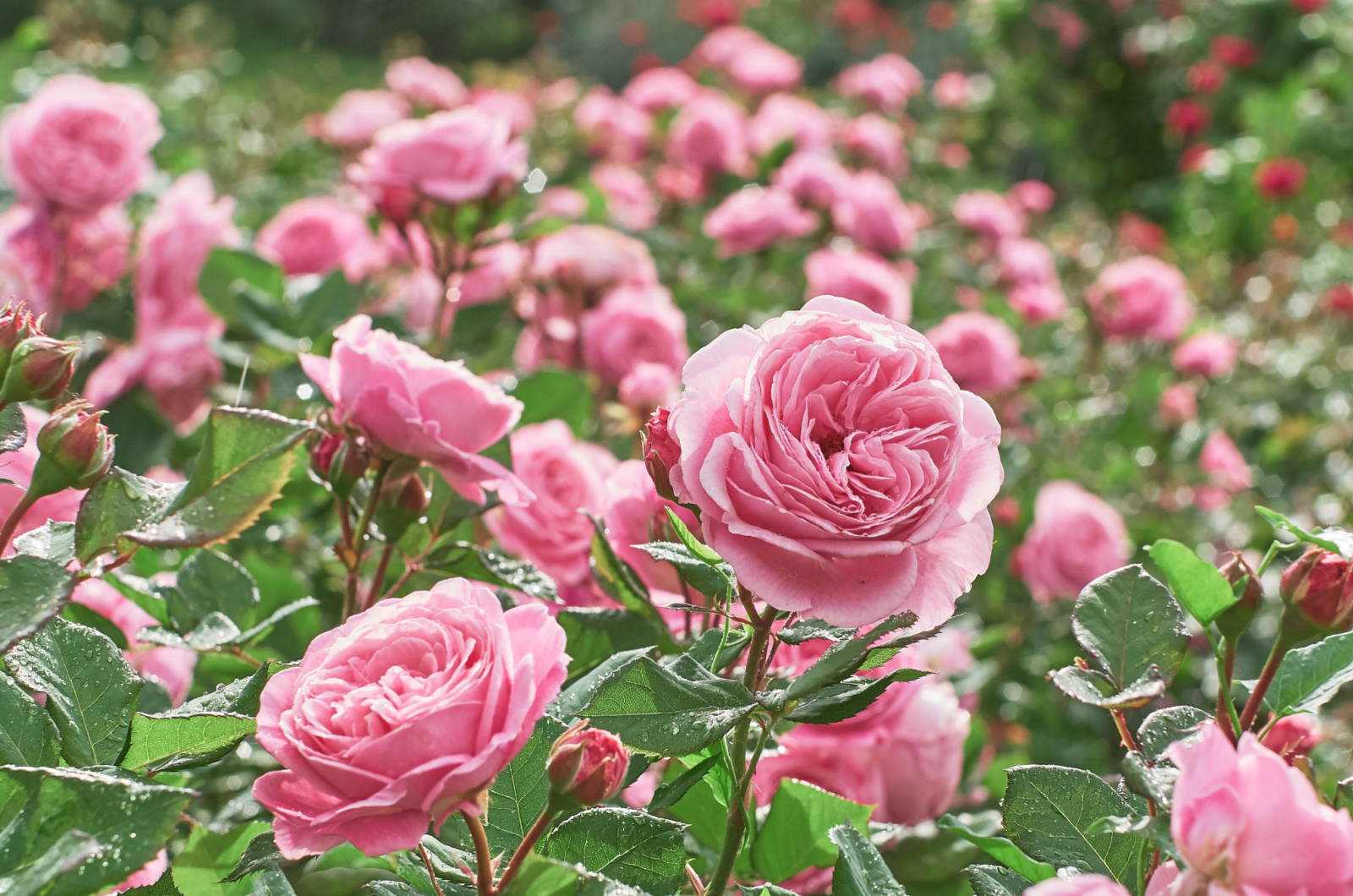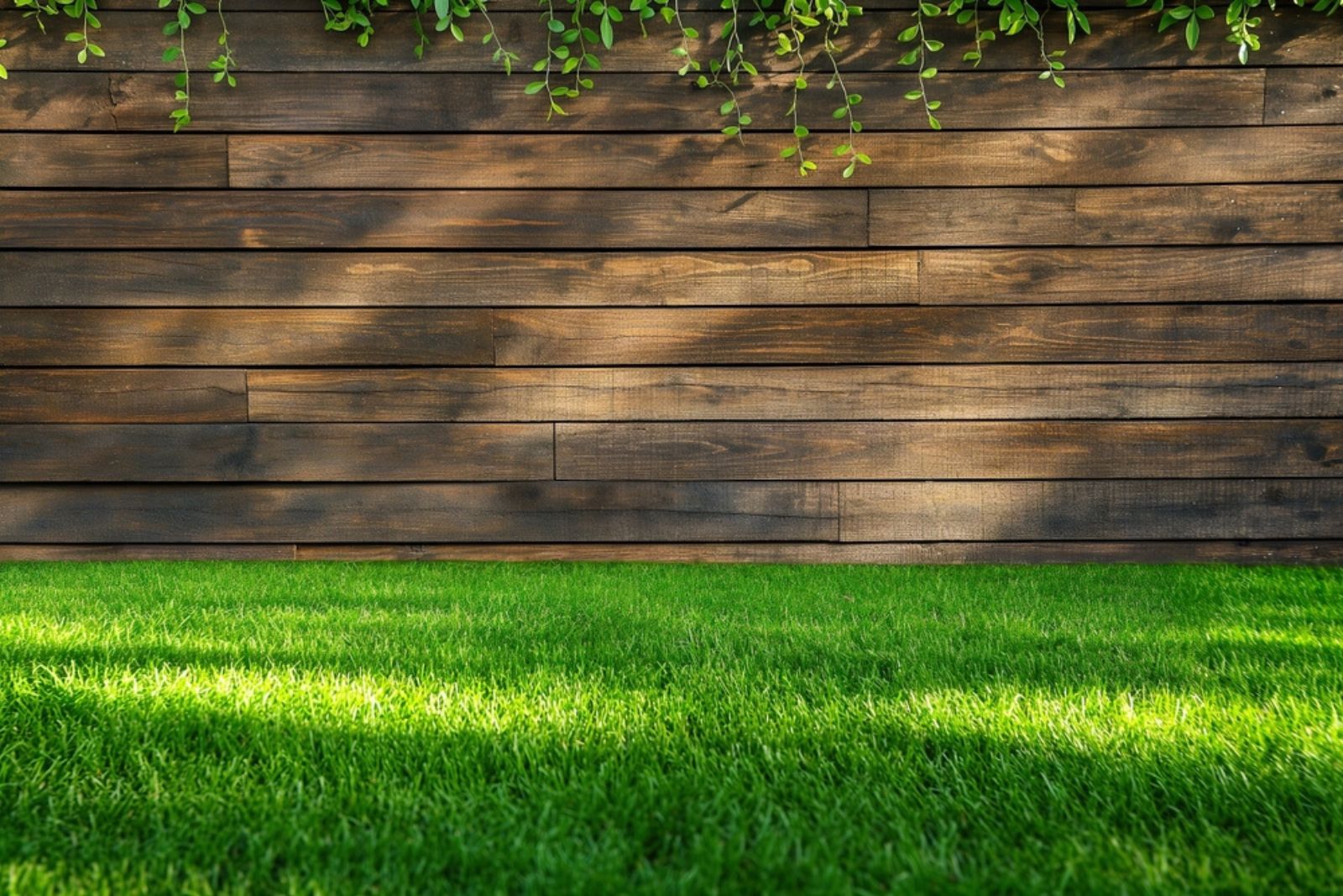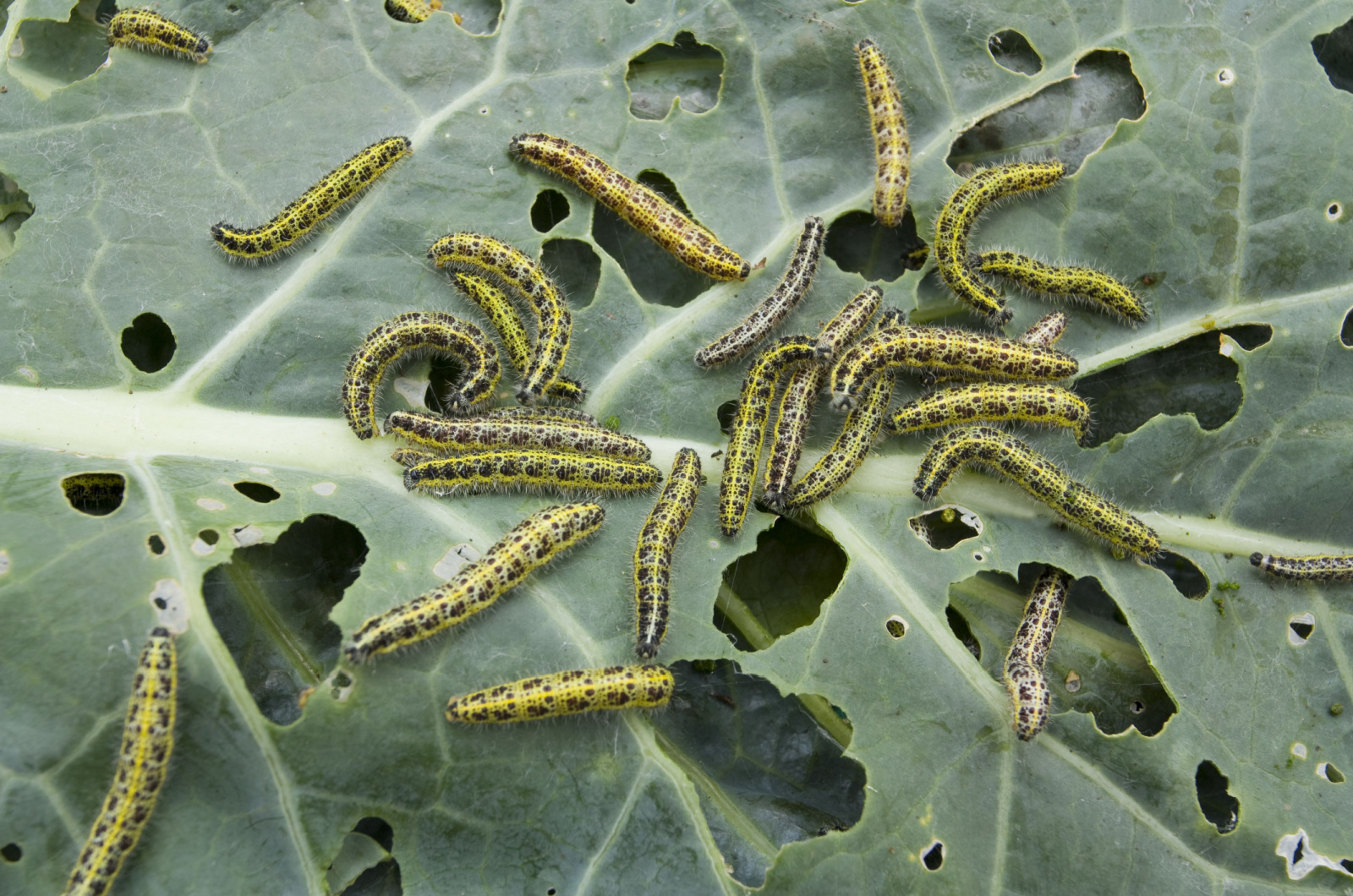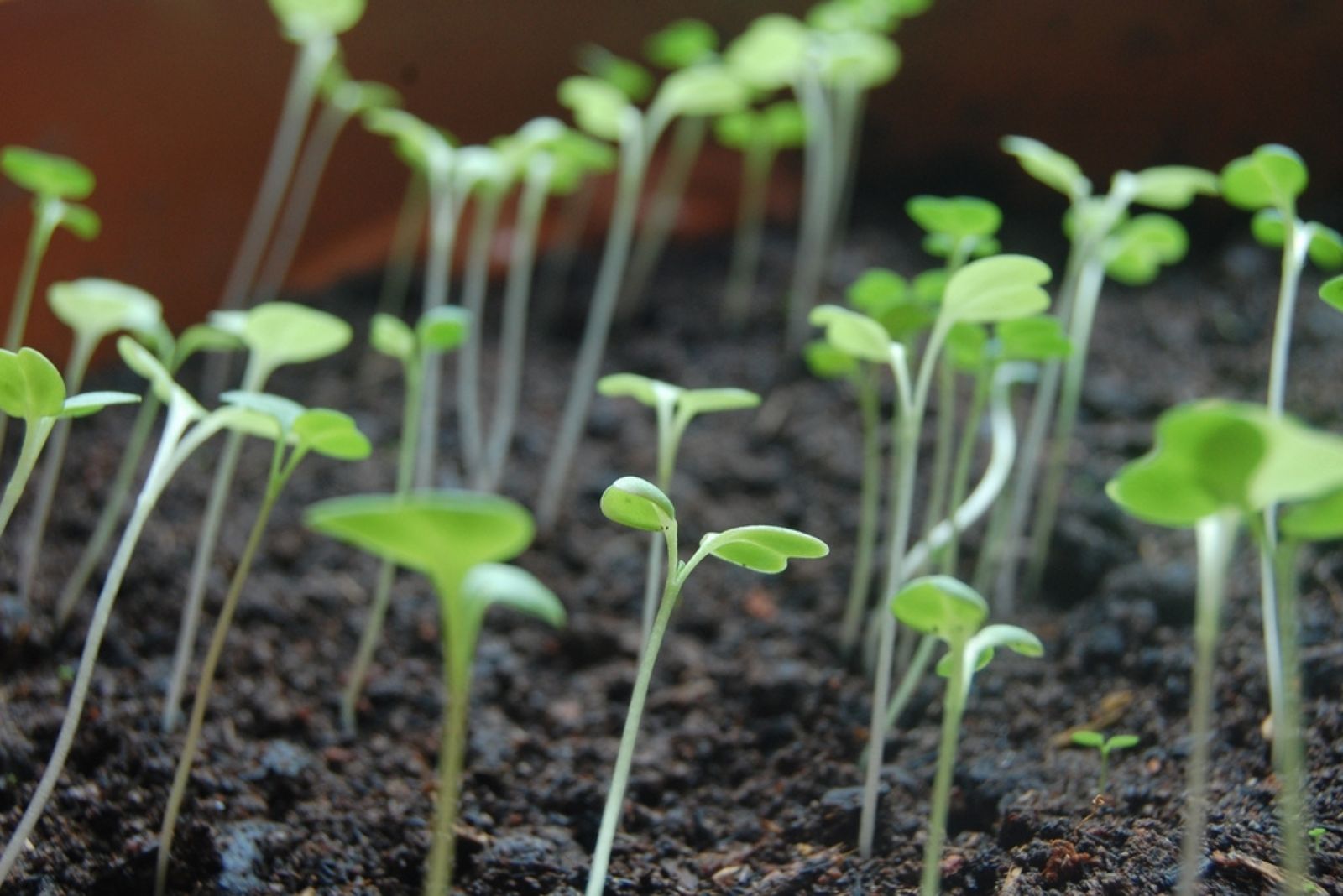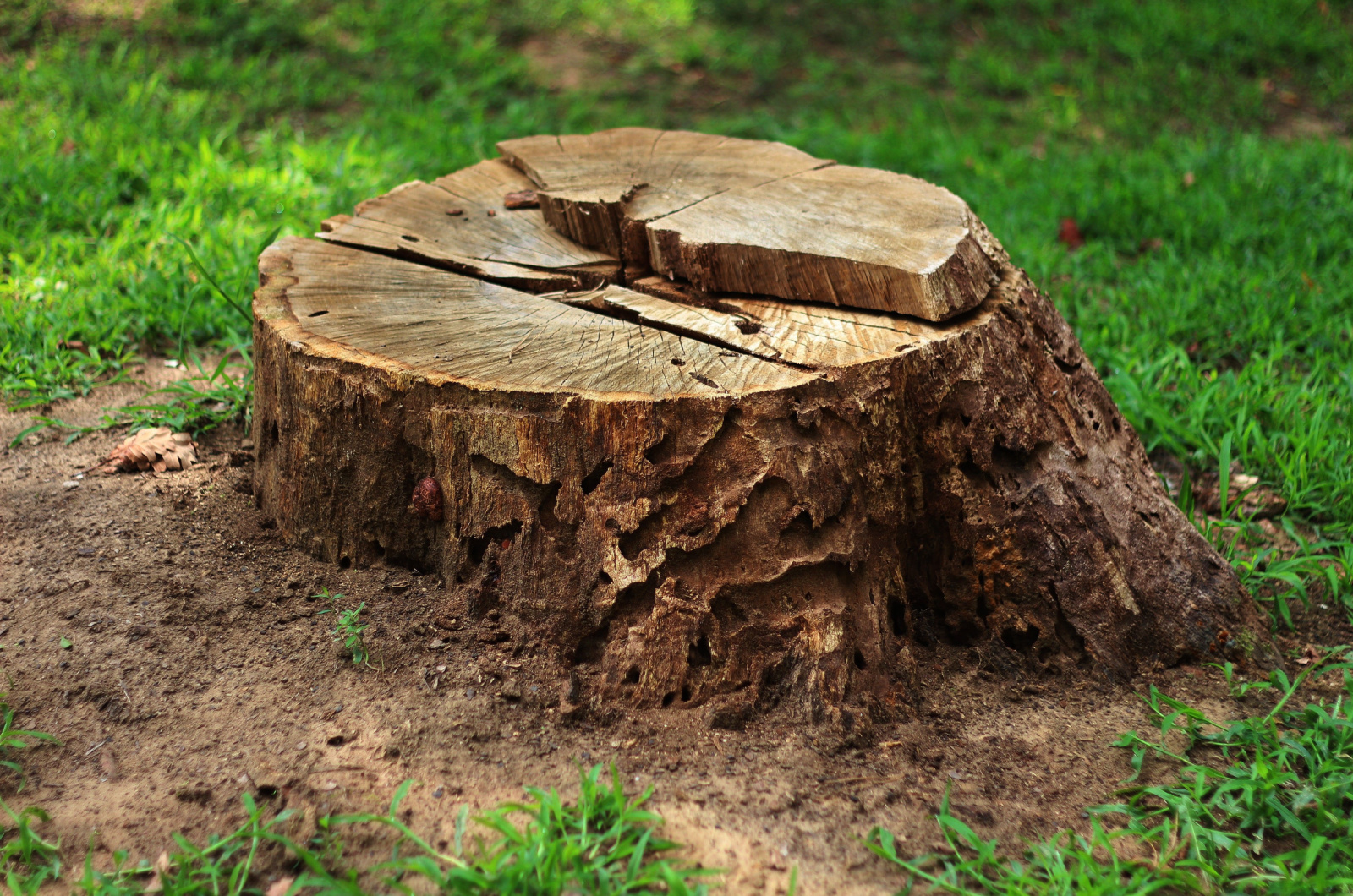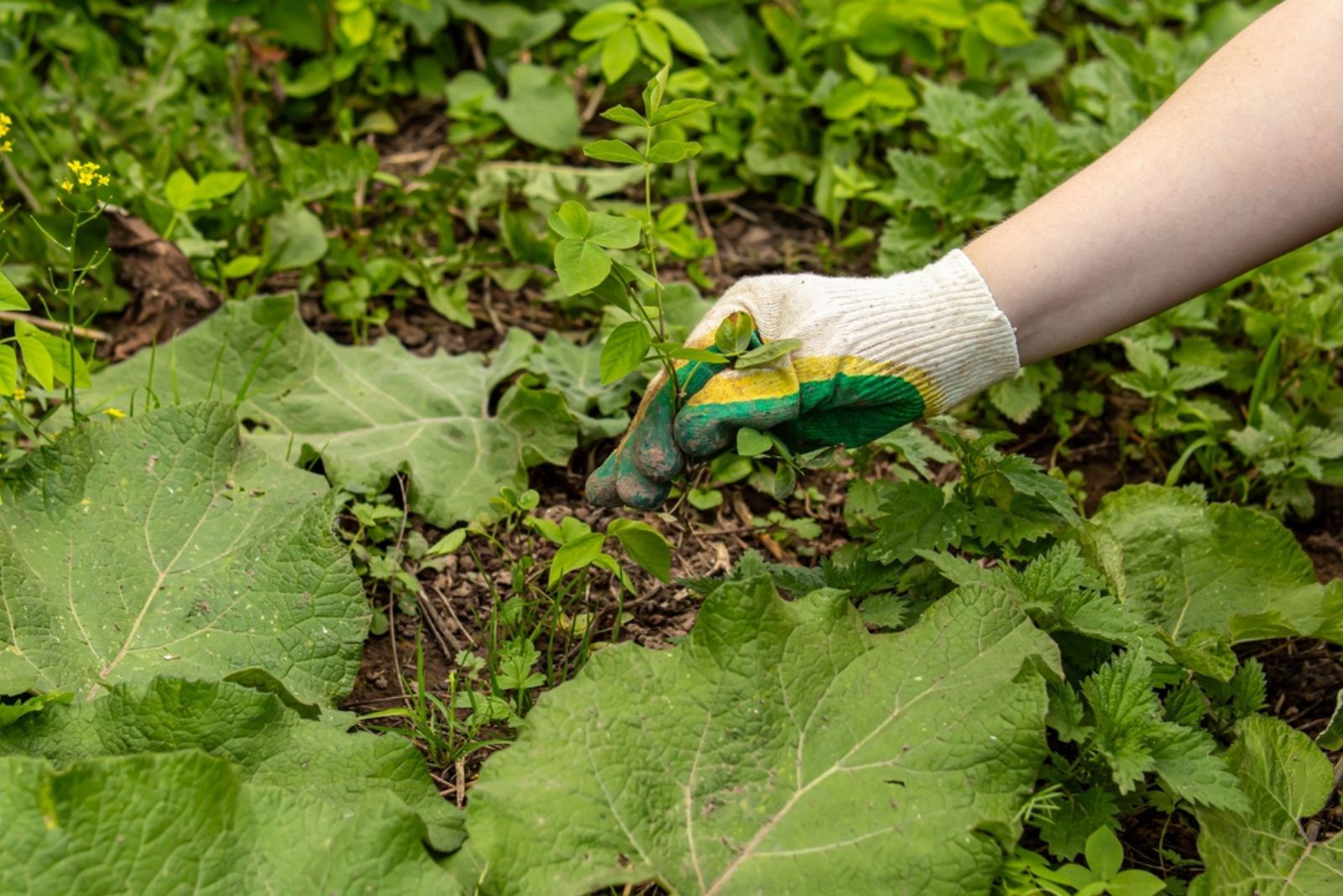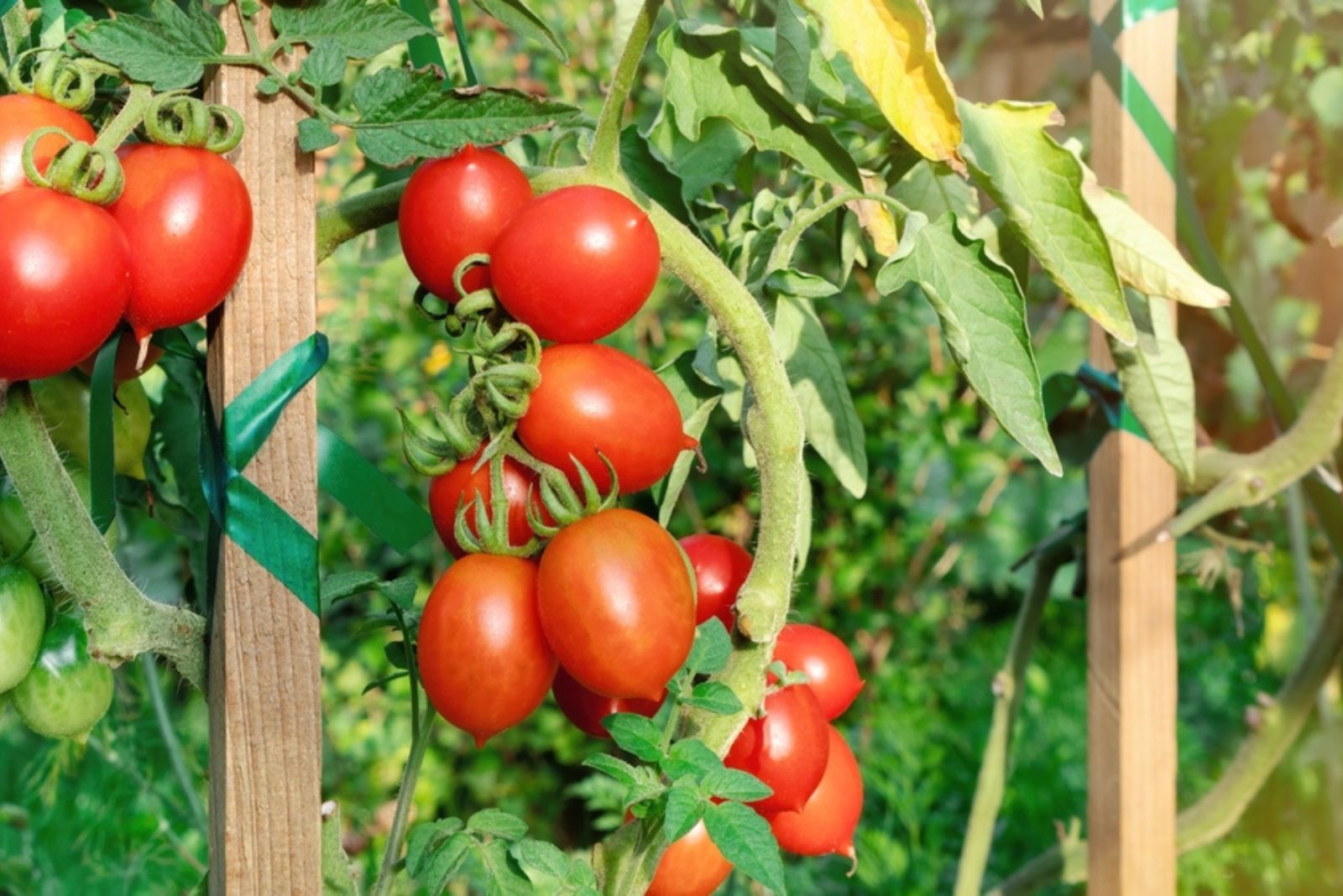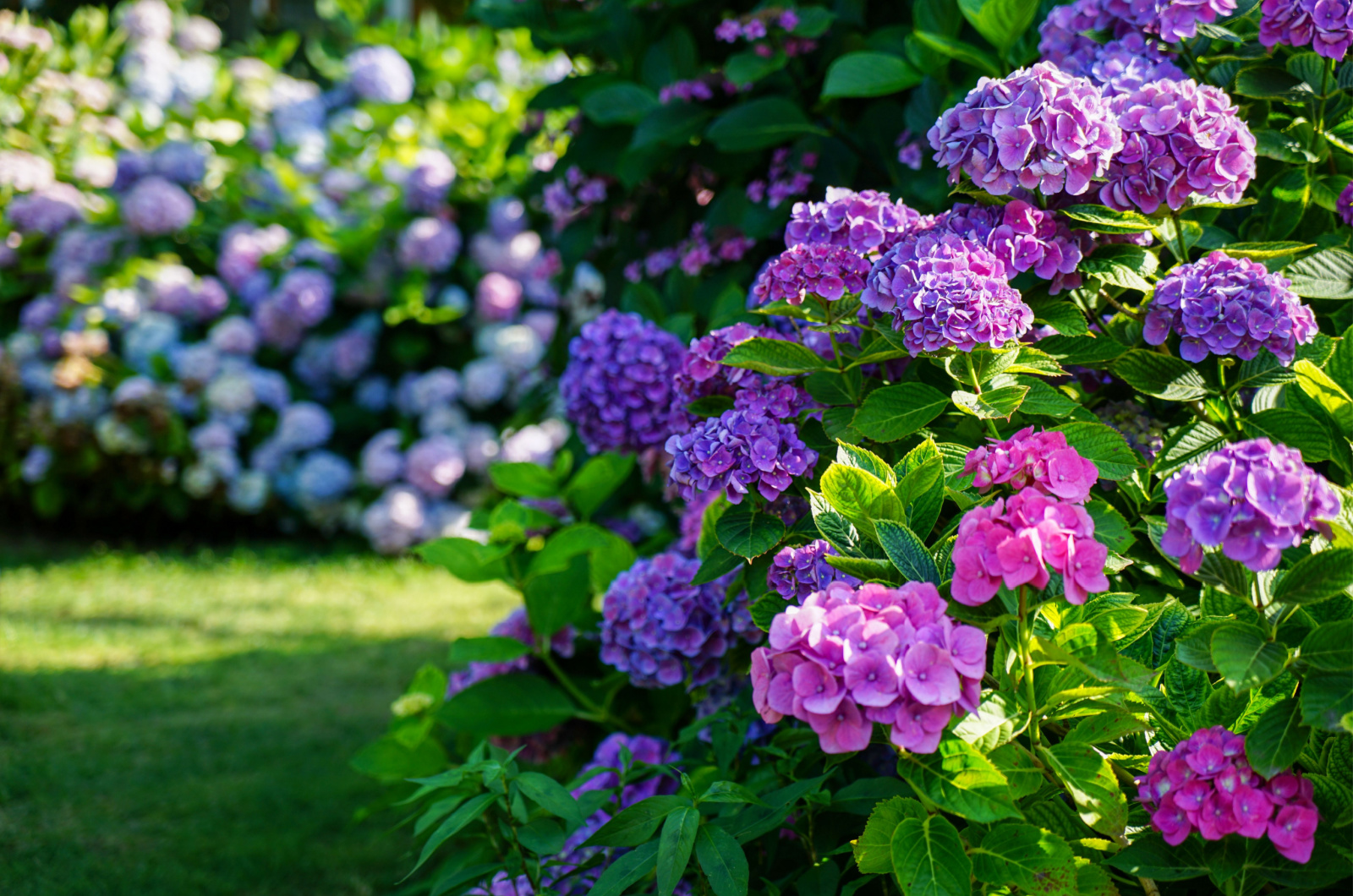Once you enter the world of gardening, you find out about numerous secret ingredients and interesting ways to help your garden thrive. And that’s exactly what I like about this practice the most!
Epsom salt is a hidden gem, at least for beginners. This powerful ingredient is widely available and doesn’t contain harmful chemicals like some store-bought products used for the purposes of plant cultivation.
Here are the best reasons to use Epsom salt in the garden!
1. For Roses
No one denies the fact that roses are one of the prettiest flowering plants out here. But I always say it comes with a price.
Growing roses isn’t easy and most beginners find it challenging to keep these plants happy and thriving.
Epsom salt is here to help! This powerful ingredient will help you get more rose blooms and encourage these plants to display healthy new growth.
Magnesium sulfate promotes overall soil health, which results in a flourishing plant with an abundance of vivid and better blossoms.
First, measure the height of your rose. If it’s about a foot tall, you’ll need to dissolve a tbsp of Epsom in a gallon of water. You can apply this fantastic foliar spray twice a month for the best results.
Using this salt type is also beneficial during the rose transplantation process. Dissolve a cup of Epsom salt in a gallon of water and let the rose transplants soak overnight.
It will promote root health and help them adapt easier to new environments, i.e., decrease the effects of transplant shock.
Another way to use Epsom salt for transplants is to add a tbsp to the planting hole.
2. For Lawns
A thick and green lawn is the dream of every yard owner. Epsom salt can help you achieve this because it will add magnesium and sulfur to the soil. It will enhance the texture and structure of your lawn and the soil will uptake nutrients faster.
Photosynthesis can’t be performed if there’s no magnesium in the soil. Amino acids, enzymes, and vitamins occur in the soil if there’s enough sulfur. It results in the healthier development of the grass and consequently the lawn.
Using this ingredient will help you avoid chemical fertilizers, which can harm your plants over time.
All you need to do is sprinkle the salt on your lawn; you can use approximately 3 pounds of salt per 1,250 square feet.
3. To Repel Pests
Unfortunately, the possibility you’ll have annoying pests in your garden is very high no matter how hard you try to prevent them.
However, there are some natural methods to control pests and one of the most efficient is Epsom salt.
For instance, if you have issues with slugs, simply dissolve a cup of Epsom salt in 5 gallons of water, pour the mixture into a spray bottle, and apply the solution to your plants.
It will dehydrate slugs and kill them and the leaves and shoots of your plants will develop further.
The biggest benefits of this method are cost-effectiveness and eco-friendliness.
4. To Enhance Germination
As mentioned above, this ingredient aids photosynthesis and promotes nutrient uptake and chlorophyll production.
Due to these features, it will enhance seed germination, especially if you use it for the seeds of nuts and fruits.
Sprinkle some Epsom salt over the potting mix, insert the seeds, and irrigate well.
It will promote soil drainage and break its compaction; the roots will have enough space to extend and the germination process will be completed.
5. To Kill Tree Stumps
If you’ve ever tried to remove tree roots, you know how hard it can be. You can use Epsom salt for this purpose, too.
Best of all, the process isn’t complicated and you don’t need special equipment.
Simply drill a lot of holes in the stump, fill each hole halfway with Epsom salt, and irrigate well. Take a plastic bag and put it over the stump.
It can take about a year for the stump to dry out completely and be ready for removal.
Why does Epsom salt work for tree stumps? It causes the woody materials in the ground to lose water entirely and they can’t survive without moisture.
6. To Kill Weeds
Getting rid of weeds in our gardens and landscapes can be a true nightmare. Store-bought products aren’t only expensive but they’re also harmful because they contain chemicals.
There’s a simple weed-killer recipe made of a gallon of vinegar, 2 cups of Epsom salt, and 4 tablespoons of dish soap.
Pour the solution into a spray bottle and apply it to all areas in your outdoor space where you notice weeds. Using the solution during the hottest part of the day in the summer will increase its power. Weeds don’t stand a chance!
Epsom salt actually restricts nutrient uptake of the weeds, and weeds can’t survive without nutrients.
Another benefit of this salt when it comes to weed removal is that it won’t harm other plants in your garden.
7. To Improve Soil Quality
Epsom salt works well for roses and lawns but you can also use it for overall soil health for potted plants.
The soil will benefit from higher concentrations of magnesium and sulfur. (1) Your precious plants will have more nutrients and you’ll avoid overwatering since Epsom salt enhances drainage and air circulation.
Take a gallon of water, add 2 tablespoons of Epsom salt, and water your container plants with it. You can apply this fantastic solution once or twice a month.
8. For Tomatoes
If you want to add tomato plants to your garden or already have some, make sure to prepare some Epsom salt!
These are relatively sensitive plants and if they lack magnesium, their leaves might turn purple and die. Additionally, you may end up with small tomatoes in poor condition if they lack sulfur.
That’s where Epsom salt steps in! Magnesium sulfate will fix the problem of nutrient deficiency.
You can also use it to prevent blossom end rot, which is deadly to tomato plants. (2) It will enhance calcium uptake from the soil and, as long as your tomatoes have enough calcium, they’ll be safe from this deadly disease.
Fertilize your tomatoes with a mix of 1 tbsp of Epsom salt and water.
9. For Hydrangeas
The splendid blossoms of hydrangea plants adorn gardens worldwide and if you want to get an abundance of them, Epsom salt is the way.
It will encourage magnesium uptake for the stems and roots, which will result in larger blossoms with more vivid hues.
Additionally, your hydrangeas will be less susceptible to diseases and wilting. Add a tbsp of this salt type to a gallon of water and irrigate your hydrangeas with this solution.
Gardening’s Gem
Epsom salt has gained popularity in recent years and you now know why gardeners use it.
If you want to keep things natural and keep your garden healthy and chemical-free, give Epsom salt a try, and thank me later!
References
1. Calcium, magnesium, and sulfur | Agronomic Crops Network. (n.d.). https://agcrops.osu.edu/node/3477
2. Alabama Cooperative Extension System. (2023, June 28). Blossom-End rot in tomatoes: Causes and prevention – Alabama Cooperative Extension System. https://www.aces.edu/blog/topics/lawn-garden/blossom-end-rot-in-tomatoes-causes-and-prevention/

